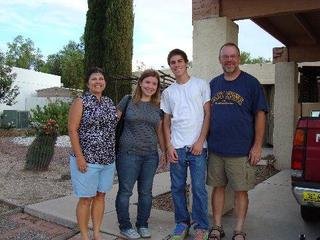This post first appeared
here.
“What if the church is not about attracting people into a building but living as God’s people in the public space of their own community and neighborhood?” (Alan J. Roxburgh & Fred Romanuk, The Missional Leader: Equipping Your Church to Reach a Changing World (San Francisco: Jossey-Bass, 2006), 170.)
This quote, and the book where I encountered it, have awakened me to a clearer perception of my work and ministry. To use a much over used phrase, I have experienced a paradigm shift. I think I now see more clearly the nature and purpose of the church as it is revealed in Scripture. And, I now see why the United Methodist Church in North America is declining.
Church is what we do between 9:00 am and 12:00 pm on Sunday. It’s where we know we can go to receive religious goods and services. In other words, we have turned the church into a religious version of Wal-Mart.
We have forgotten our Wesleyan DNA. Or, to use Alan Hirsch’s term, mDNA (missional DNA). We have turned the church into an institution. We have encumbered it with structure, bureaucracy and real estate. Consequently, we talk about the church as a static edifice. It is the place we go on Sunday morning and Wednesday night. We go there to be blessed and to grow in our personal relationship with Jesus Christ. Church is what we do between 9:00 am and 12:00 pm on Sunday. It’s where we know we can go to receive religious goods and services. In other words, we have turned the church into a religious version of Wal-Mart.
In the vast majority of United Methodist congregations membership has very little meaning because there is very little expected. Church membership has been reduced to something akin to membership in Sam’s Club. You pay your nominal dues and then you are entitled to all the benefits of discounted goods and services. This is particularly true when most congregations reduce membership vows to “will you faithfully participate in [the local congregation’s] ministries by your prayers, your presence, your gifts, your service, and your witness.” Nothing is asked about rejecting the evil powers of this world and repenting of sin, accepting the freedom and power God gives to resist evil, injustice, and oppression, or confessing Jesus Christ as Savior and Lord.
When we reduce membership to “prayers, presence, gifts, service, and witness” we put ourselves and the local congregation on center stage. Christ and his mission for the world are relegated to the margins. The church’s ministry is focused upon attracting as many people as possible to itself. Discipleship becomes an optional program. Mission is relegated to sending money and prayers to missionaries in foreign countries. And if the people who come happen to meet Jesus along the way, well that’s a special blessing. What really matters is that people come to the church. To that end, the governing principle of most congregations is the General Rule of Pastoral Prudence: “The absolute minimum in obligations in order to keep the maximum number of people.”
The Wesleys understood that the church does not exist for itself, it exists for the world that God loves. People are drawn to it when it is like salt of the earth and light for the world.
I am convinced that one of the reasons the North American United Methodist is declining is that more and more people today are looking for meaning and purpose. They are drawn to communities that are missional. They yearn to give of themselves to something bigger than themselves. They want to meet and experience the power of Jesus Christ. They want to make a difference in the world.
The Wesleyan movement was essentially missional in character. It attracted people because of the mission to “reform the nation, particularly the Church; and to spread scriptural holiness across the land.” The Wesleys and Methodism were all about participating in Christ’s mission for the world: to prepare Earth for the coming reign of God. They were a people on a mission. And the mission was centered in the life, death and resurrection of Jesus Christ. The Wesleys understood that the church does not exist for itself, it exists for the world that God loves. People are drawn to it when it is like salt of the earth and light for the world.
We need to reawaken this latent Wesleyan mDNA present in the North American United Methodist Church. God’s reign will come with or without the United Methodist Church. Our task is to become the church that God can use; the kind of church that is like salt and light; the church that witnesses to Jesus Christ in the world, and follows his teachings through acts of compassion, justice, worship, and devotion under the guidance of the Holy Spirit.
Steven W. Manskar is the Director of Wesleyan Leadership for the General Board of Discipleship.

